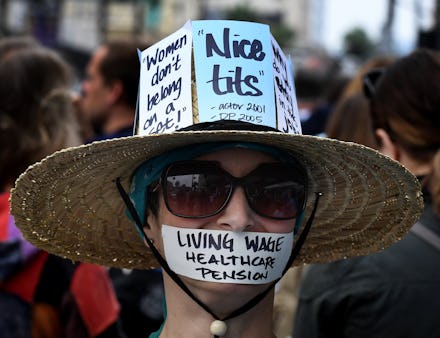Why suing over employee discrimination is a hell of a lot harder than it should be

2018 has been a big year for decisions related to employment discrimination. The U.S. Court of Appeals for the Sixth Circuit found on March 7 that employment discrimination against transgender people is a violation of Title VII of the Civil Rights Act. The case was based on a suit filed by funeral home worker Aimee Stephens, who was fired two weeks after telling her boss she would soon begin living as a woman. And in February, in response to a case brought by skydiver Donald Zarda, who was fired from his job after his employer found out he is gay, the U.S. Court of Appeals for the 2nd Circuit found that Title VII also covers gay employees.
Yet, across the U.S., employers can, and do, discriminate for these reasons. And those who attempt to sue their employers on these grounds often find themselves facing myriad and unexpected obstacles. High costs, complicated procedural deadlines, contractual agreements, lax labor laws and the fact that these lawsuits can often take years to resolve can make it difficult for many to actually see justice.
Although this lawsuit was initially filed in 2008, it took until 2017 for any of the employee statements to become public knowledge. Many of the statements include allegations that managers and other higher-ups pressured employees into sex in exchange for advancing their careers, and incidents in which male managers from the company’s headquarters sent out “scouting parties” to find female employees they might want to have sex with.
Many of the statements are still secret. But if they had been made public earlier on, perhaps the company would have been pressured to make changes faster, or perhaps women would have reconsidered applying to work for the company.
Even if an employee doesn’t sign any contracts, the process for suing an employer for discrimination is incredibly difficult.
“I would be fined into bankruptcy if I talked, basically,” she said. “I can’t say anything that would in any way lead people to believe that I had been wronged by the company, or received a settlement.”
Why might someone sign an NDA knowing that? For many, it feels like the only way to bring something good out of the situation.
“I needed what justice I could get, and it was a $40,000 settlement, a third of which my lawyer took and on which I was taxed. I signed the NDA because I had no other option left, and I was about to be evicted from my apartment,” she said.
Signing that agreement, she explained, “meant that I had options. I was able to get a part-time job, a hospital helped me get enrolled in Medicaid and I was able to pay co-pays at a low-income behavioral health clinic.”
In addition to providing NDAs, some companies continue to enforce noncompete contracts with those who leave after facing discrimination or sexual harassment. This can make it difficult to find employment afterwards.
Does any of this mean that if someone feels they are discriminated against at work, they shouldn’t even bother? No, Holder says: “If you feel like you’ve been abused at work, most likely you have.”
“You owe it to yourself to seek justice, no matter how small,” she said. “Call an employment lawyer and ask questions. Google the EEOC. The worst thing you can do is bury your pain. So many people are out there to help you.”
Sign up for the Payoff — your weekly crash course on how to live your best financial life.